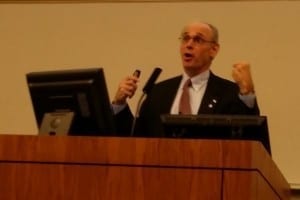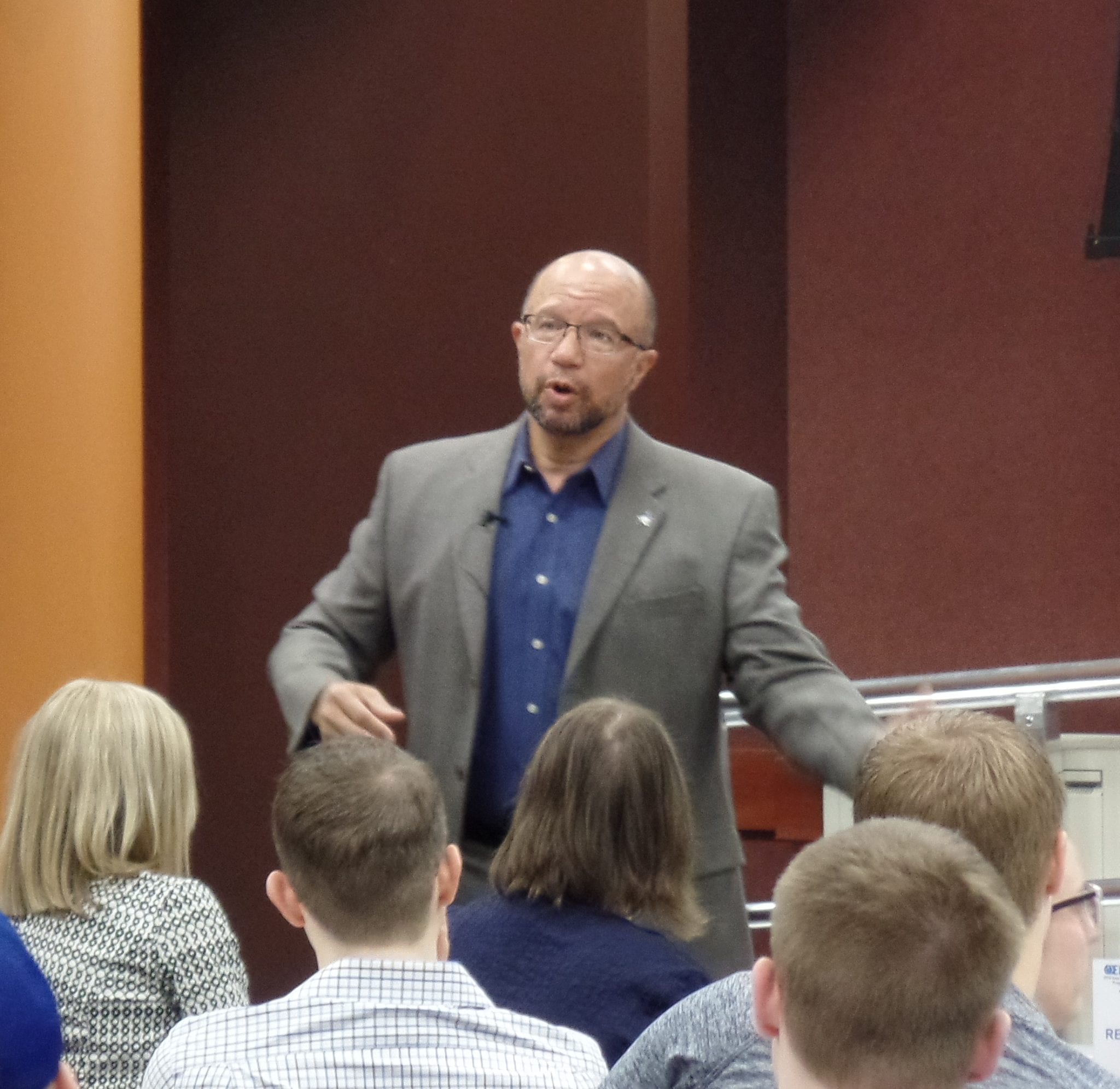According to the American Cancer Society, much of the suffering and death from cancer could be prevented by increasing the use of established screening tests and addressing lifestyle factors such as tobacco use, diet and physical activity. To respond to this claim, Des Moines University Continuing Medical Education has joined the American Cancer Society, the Iowa Cancer Consortium, John Stoddard Cancer Center, Mercy Cancer Center-Des Moines and the Iowa Department of Public Health to obtain grant funding for an ongoing partnership focused on connecting health care providers with screening and surveillance guidelines, up-to-date and high-quality screening methods, professional and effective communication skills and palliative care resources.
A prominent goal of this long-term partnership is to reach a colorectal cancer screening rate of 80 percent in Iowa by 2018. Educational activities are held regularly and are open to members of the DMU community as well as local health care providers and the public. Below is a brief update on these efforts. Recordings of these activities are accessible via the live links in each paragraph; CME credit may be available for viewing the presentations.

At the first of several related educational activities, last fall DMU CME and the DMU Office of Research welcomed Richard Wender, M.D., chief cancer control officer at the American Cancer Society. Dr. Wender’s presentation, “Nine Trends that will Determine the Future of Cancer Research in the World,” opened eyes to the vast array of factors that currently influence cancer treatment, research and global efforts related to cancer control.

This spring, DMU hosted Mary Charlton, Ph.D., an epidemiologist and health services researcher at the University of Iowa College of Public Health and the State Health Registry of Iowa. She shared research evaluating the effectiveness of a variety of approaches to increasing colorectal cancer screening rates. She described simple and cost-effective interventions that can be completed at home with little effort, such as a mail-return program for fecal immunochemical testing. View her presentation here.

As a finale to the educational series, in May DMU hosted Durado Brooks, M.D., M.P.H., the cancer control intervention managing director at the American Cancer Society. Recipient of the Prevent Cancer Foundation’s Laurel Award for National Leadership in cancer prevention and early detection, Dr. Brooks is involved in the creation and implementation of strategies to improve the prevention and early detection of cancer and to reduce cancer disparities. His interactive discussion shed light on methods to improve colorectal cancer screening rates and quality.
The Iowa Get Screened: Colorectal Cancer Program was also involved in the partnership and provides education and awareness of colorectal cancer to all Iowans. Through the colorectal cancer program, participants can receive direct screenings and reduce their risk for colorectal cancer. The program was established in 2009 funded by a grant from the Centers for Disease Control and Prevention with the goal of reducing the incidence, mortality rate and prevalence of colorectal cancer in Iowa.
By joining partners to quell cancer and share information with the DMU community and beyond, Continuing Medical Education is working to enhance health care and fulfill the mission, vision and values of the University. Check the CME event calendar to explore additional educational activities.

